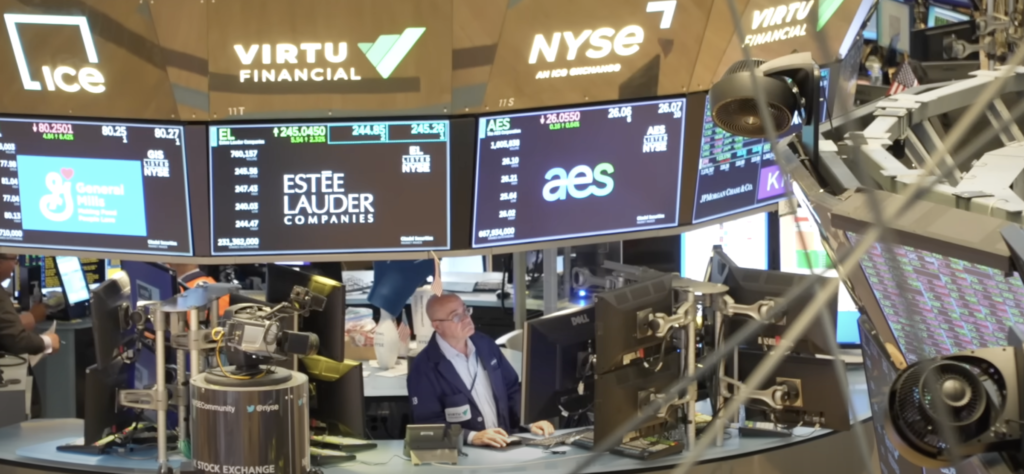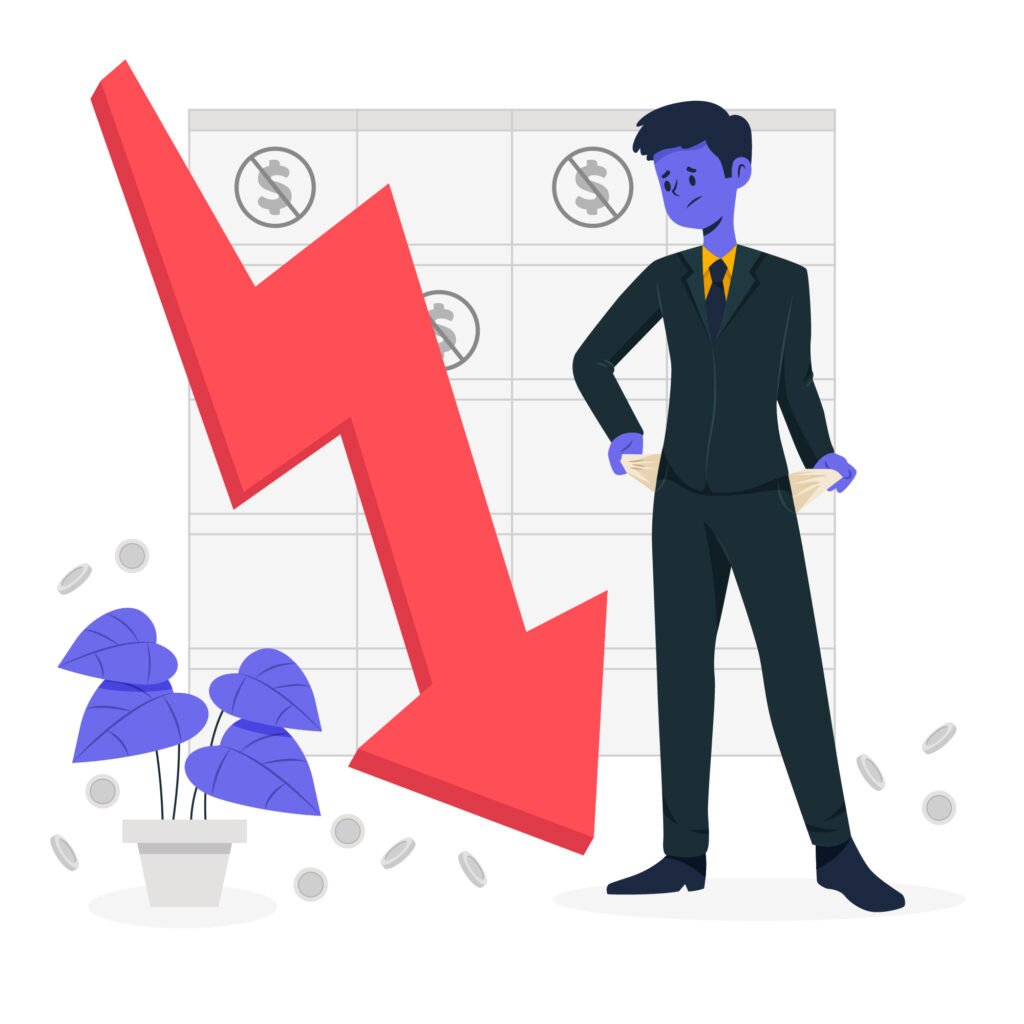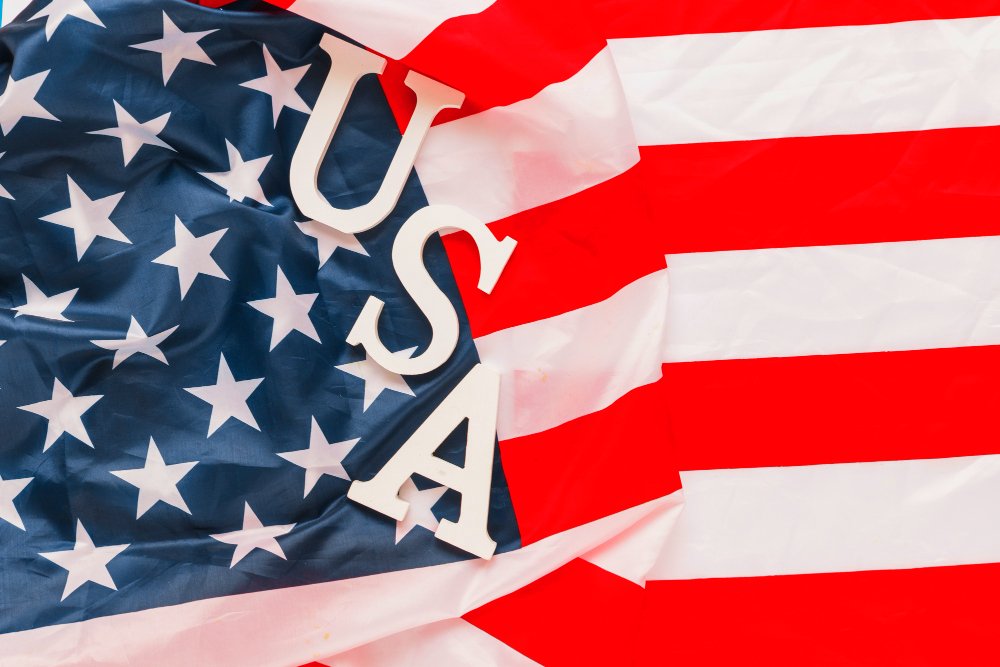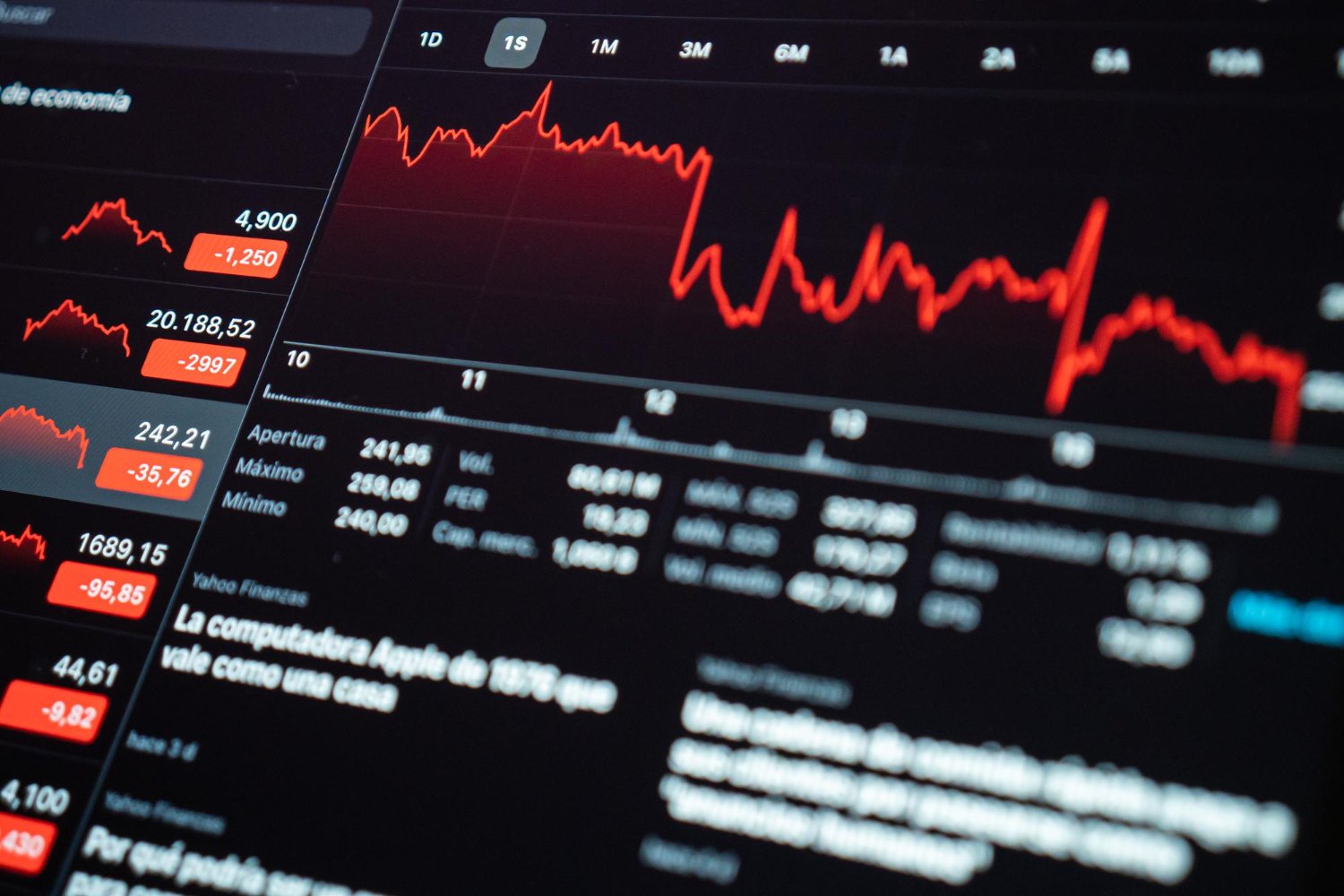The US Stock Market is heading into its most volatile month during an election year.

US stock market, According to CFRA Research, since 1992, nine of the S&P 500's 11 sectors have seen growth in the fourth quarter of an election year.
While Wall Street is preparing for the most anticipated month of the year with the presidential elections, investors are questioning whether the big boom expected from the third quarter will be there in the market. The market has grown at a record pace. According to the Chief Investment Officer of CFRA Research, historically speaking, since 1945, the share market has shown a strong performance during the election years in September. The result of this increase was almost 80% in the next October, as against the general trend of only 61% in all the years.

Additionally, according to Stovall, the benchmark index has risen in the fourth quarter 80% of the time, while the S&P 500 has risen in the third quarter less than 60% of the time since 1945.
“Factors that may continue to propel this market (in the fourth quarter) include China’s recent stimulus program, the ongoing easing in U.S. inflation readings as the personal consumption expenditures (index) for August recorded another downtick in growth, and the likelihood of two more Federal Reserve interest rate cuts totaling 50 to 75 basis points,” Stovall wrote.

Election-Year Stock Market Performance Patterns in the Fourth Quarter
Investors concerned about the performance of the stock market in the last quarter of 2024 have also received a positive signal from the broadening rally in U.S. stocks, according to Stovall.

Since the S&P 500's gain in the third quarter has been "accompanied by gains in stocks of all sizes, styles, and 10 of 11 sectors," Stovall wrote, "participation remains favourable."

FactSet data indicates that out of the 11 sectors in the large-cap benchmark index, the S&P 500's utilities, real estate, and industrials sectors performed the best this quarter, with the energy sector being the only one to see quarterly losses.
The Volkswagen Groups owns these luxury brands
Among the biggest businesses in the world is without a doubt the Volkswagen Group. and in every segment worldwide, not just the automotive one. The Volkswagen Group actually commands 12 brands, over 50 subsidiaries, and is among the top 10 corporations in the world by revenue. Porsche owns the majority of the VW Group.

Bugatti
Established in 1909, Bugatti produced numerous competitive race vehicles for many years until ceasing operations in the 1950s. With the release of the EB110 in 1991, the Bugatti brand was brought back to life as a manufacturer of extremely fast, limited-edition sports cars. The brand is still owned by the Volkswagen Group, who purchased it in 1998.

Lamborghini
Based in Sant'Agata Bolognese, Automobili Lamborghini S.p.A. is an Italian brand and producer of high-end sports vehicles and SUVs. Through its subsidiary Audi, the Volkswagen Group owns the business. Currently, Lamborghini makes the V10-powered Huracán, the V12-powered Aventador, and the twin-turbo V8-powered Urus SUV. Furthermore, the company manufactures V12 engines used in offshore powerboat competition. With its headquarters located in Pieve di Cento, Italy, Lamborghini Trattori was established in 1948 by Ferruccio Lamborghini and is still in the tractor business today.

Bentley
This British luxury car manufacturer and marketer has been a division of Volkswagen AG since 1998. Crewe, England serves as the home office of Bentley Motors Limited. In the end, Bentley was purchased by Rolls-Royce in 1931. Nevertheless, Rolls-Royce Motors was eventually acquired by the engineering company Vickers. Vickers ultimately made the decision to sell Rolls-Royce to Volkswagen AG in 1998.

Porsche
Established by Ferdinand Porsche in 1931, Porsche is a German automobile manufacturing firm that did not begin car production until 1939, when it produced its first vehicle. In actuality, Porsche was producing military tanks throughout World War II. It is also true that its designs resemble those of the well-known Volkswagen Beetle. This is because the two businesses were well-established when they decided to merge in 2009, with VW owning the majority of the shares as of 2015.
Will the stock market crash more than the 2008 crisis in 2025?
A market meltdown predicted to exceed the 2008 crisis is predicted by economists for 2025
A market meltdown predicted to exceed the 2008 crisis is predicted by economists for 2025. The renowned economist and HS Dent Investment Management founder, Harry Dent, has issued a warning about an impending catastrophic collapse of the world stock market.
The 71-year-old financial expert, who is well-known for his audacious economic forecasts, hinted that a financial catastrophe of never-before-seen proportions might be approaching in an interview with Fox News.
Dent's dire prediction was made just after the world stock market finished May with strong gains, giving many investors hope that things are back to normal.
The financial expert emphasized that the so-called "everything" bubble is still intact and that a blow-up might trigger the "crash of a lifetime" when it does.
During the conversation, Dent emphasized the distinctiveness of the current economic environment by drawing comparisons to the historical market crash of 2008. He noted that the current state of affairs in the financial sector is unique since it is driven by artificial stimuli, in contrast to earlier natural booms in the 1920s.

Thinking back on how long the current bubble has lasted—more than 14 years, which is much longer than most economic bubbles last—Dent emphasized how serious the crash could be.
He projected that sometime in 2025, the effects of this crisis may outweigh those of the Great Recession of 2008–2009, with possible drops of up to 86% in the S&P and 92% in the Nasdaq.
Dent suggests that even market heavyweights like Nvidia would not escape the fall, implying that even high-flying equities could be severely damaged. Dent acknowledged the quality of firms such as Nvidia but cautioned that there could be severe reductions, potentially as much as 98%.
Hindenburg Research takes aim at AI companies, sinks two company’s shares
Hindenburg Research aims at AI Bubble
Hindenburg Research, an activist short-selling firm known for its market-making takedowns of top companies such as Block and the Adani Group, published two reports last week on companies it sees as unfairly profiting from the AI boom. Share prices of server and storage maker Super Micro and software company iLearningEngines both fell sharply.
The report comes amid growing hype from companies ranging from hyperscaler giants like Microsoft and Google to hardware firms and even utilities that could benefit from the demand. Last week, GPU maker Nvidia announced better-than-expected performance, but its stock price still fell, reflecting growing wariness about the industry, especially among institutional investors.
Hindenburg's two reports are an even stronger indication of bubble fears. The short-selling firm targets companies or sectors that they believe are overvalued. Hindenburg often takes a short position on a company that thinks it will collapse before it publishes its findings, hoping to reap a handsome return from a falling stock price.

Accounting fraud
Hindenburg's first report on Tuesday focused on Super Micro, a maker of hardware such as servers and motherboards that is important to AI companies. Super Micro's market cap was about $35 billion before Hindenburg's research. The day after the report, it fell 26 percent and remains at about $26 billion.
Hindenburg's report on iLearningEngines on Thursday proved even more damning. Like Super Micro, Hindenburg described iLearningEngines as a company looking to capitalize on the AI wave, although short sellers doubted the company had ever focused on the emerging field before the hoax.
iLearningEngines went public via SPAC in April 2024, although its stock price was around $3 before the report, which dropped below $1.50 after Hindenburg's investigation with a market cap of around $175 million.
The United States Social Security Administration announces good news for these retirees
The United States Social Security Administration announces good news
The United States Social Security Administration announces good news today for thousands of US citizens. If you fit specific qualifications, you could receive one of these monthly checks as soon as possible. To be eligible for today's benefit, all you have to do is apply for it at the designated time.
More specifically, the beneficiary's preferred mode of collection will also determine the day on which this benefit is collected. All qualified retirees will get checks from the Social Security Administration, however. After that, this other aspect that has been mentioned directly determines whether or not the payment is made on the same day.
Who will be eligible for Social Security?
A particular demographic is eligible to receive today's Social Security Administration payment. We must fulfill two conditions in order to do this. Of these requirements, one is required while the other is voluntary. The SSA will issue us a check at a later date if we are unable to comply with the first of these conditions.
The following criteria must be met in order to obtain the payment from the Social Security Administration today:
- own a benefit that dates back before May 1997.
- Direct Deposit must be enabled as a collection mode.
It should be noted that the nature of the benefit remains the same on the day you receive each payment. As a result, everyone eligible for retirement benefits from the Social Security Administration, including citizens with disability checks, can start receiving their benefits right away.

If my Social Security Administration check arrives late, what can I do?
If the Social Security Administration does not send the payment on the day we anticipate, there are two things to consider. First, confirm that you have perused the payment schedule. The second step is to see whether there are any issues with your personal information or bank.
We should get in touch with the bank right away if our check does not arrive on schedule. Our retirement benefit may occasionally be withheld by the bank for a variety of reasons. Therefore, we must confirm that we are debt-free and that our personal information is accurate.
However, we should also make sure that all of our personal information is consistent. We have to notify the Social Security Administration and the bank of any changes, such as moving or getting married or divorced, among other things. If you don't, money can be taken away from you.
Target surpassed Wall Street estimates for comparable sales in the second quarter and increased its annual profit

Target surpassed Wall Street estimates for comparable sales in the second quarter and increased its annual profit outlook on Wednesday as more Americans visited its shops in search of affordable necessities and food.
Following a better-than-expected performance in the first half of the year, the large box retailer now projects 2024 profit in the range of $9.00 to $9.70 per share, up from its previous range of $8.60 to $9.60. This is due to strong sales and cost savings.
In order to draw customers who are coping with the sharp increase in groceries and loan rates over the last two years, Target has increased the range of products it offers by including everyday necessities as well as private-label food and home goods.
Over 5,000 common items, such as bread, soda, paper towels, and pet food, saw price reductions this summer from the Minneapolis-based retailer. With the majority of the 400 items in its "dealworthy" private-label basics line, priced around $10, the range debuted in February. Furthermore, it added 125 new food products to its "Good & Gather" and "Favorite Day" brands through expansion.
According to Brian Cornell, CEO of Target, customers reacted favorably to the "newness" and the price reductions.
Another encouraging development was the 3% increase in apparel sales during the quarter, which was driven by the private-label "All In Motion" and "Wild Fable" lines.
The company reported that overall, shopper visits increased by 3% during the quarter that concluded on August 3, with June and July seeing the largest increases in comparable sales. Compared to the 1.9% traffic decline in the previous quarter, this represented a turnaround.
Even after a minor drop, traffic was the primary driver of the second quarter's 2% increase in comparable sales.
CEO Brian Cornell reported that customers reacted positively to the price reduction.









